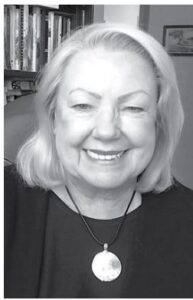Freedom is the ability to think critically and to keep an open mind. It is also the ability to change one’s mind when evidence or logic warrants.

I cannot believe that I am writing about such a previously uncontentious issue as the meaning of freedom, an issue that is the bedrock of democracy and the values of prosperity and fairness.
Yet, somehow, the word “freedom” has been corrupted to mean something nefarious and extreme.
Freedom is the ability to think for oneself and to express one’s opinions no matter how or what if those opinions do not promote hate or counsel others to violence. This is the foundation of democracy. In Canada, our freedom is guaranteed constitutionally subject only to Part 1, Section 1, The Charter of Rights and Freedoms which also refers to a free and democratic society:
- The Canadian Charter of Rights and Freedoms guarantees the rights and freedoms set out in it subject only to such reasonable limits prescribed by law as can be demonstrably justified in a free and democratic society.
Yes, governments may pass laws that limit some communications, zeroing in on what they and society deem to be specifically heinous such as child pornography. But within the Act this is “demonstrably justified”.
Fundamentally and to me personally, freedom has a much broader meaning outside the confines of government.
Freedom is something that applies not only to me as an individual. It applies to all those around me. If I am free, then so are you, and I respect that, which means that I do not believe you must conform to my opinions, ideals, values, or principles. I am interested in hearing your opposing views – maybe I will learn something new, or you will introduce a bit of logic I have overlooked. But I reserve the right to disagree and, if you are interested, to tell you why.
Freedom is the ability to think critically and to keep an open mind. It is also the ability to change one’s mind when evidence or logic warrants.
Freedom to me is self-determination and self-support. It is also the ability to accept help when needed, but to stay away from becoming reliant on that support, because reliance on others is a kind of slavery, a loss of freedom. Owing reduces freedom. Freedom is also the ability to choose to offer support to others – it is not an obligation, because obligations limit freedom for both the giver and the taker.
At the same time, freedom is the willingness to abrogate some freedoms for the common good. But it comes from an understanding that humans must collaborate and cooperate to survive – although you are always free to live in the woods, independent of other humans, if that is your preference.
Freedom is always the right of refusal to be coerced into accepting the belief of another or of everyone else. If you want to believe the earth is flat, that is up to you, just don’t try to force that belief onto others.
Society uses its freedom to abrogate some personal freedoms to protect and nurture the freedoms of others. That gift should not be turned into an obligation, which would be a kind of coercion to sacrifice general freedoms to compensate for the inability or unwillingness of others to exercise their own freedom of self-determination. Such an act is harmful to both the sacrificers and those being compensated. There must be a give-and-take balance.
The concept of freedom has been subjected to limitations through a hierarchy of declared “rights” , a societal construct that has nothing to do with our intrinsic condition as humans. From an early age, we are taught that these rights come with obligations to others and that they outweigh our personal judgement or logical actions.
For the most part due to this education, we have accepted this “obligation”, but this chips away at our personal freedom. Ultimately, these little chips begin to erode the structure of freedom to the point where the concept becomes gradually more nebulous and where, if not balanced, we become vulnerable to a loss of our democracy. An example would be the socialist revolutions of the past where good intentions to create balance through the removal of freedoms backfired leading to the ultimate failure of those societies.
As explained, freedom is not unconditional, but the conditions have to do with our need to be part of a community structure. The right to give up some of that freedom is that of the owner only, and it must in most part be given freely, not taken by dictates from others who demand sacrifice.
Societies that live according to these standards, where freedoms and sacrifices are balanced by need and generosity, are essentially democratic.
Related article:


